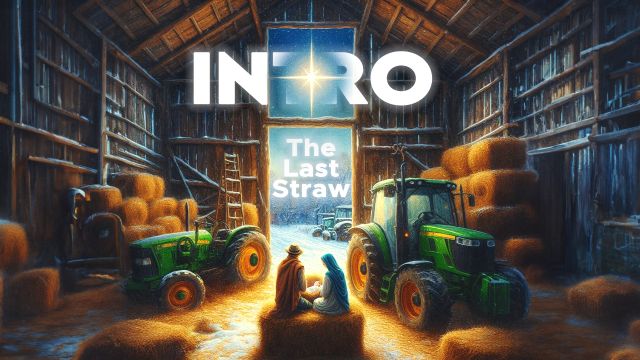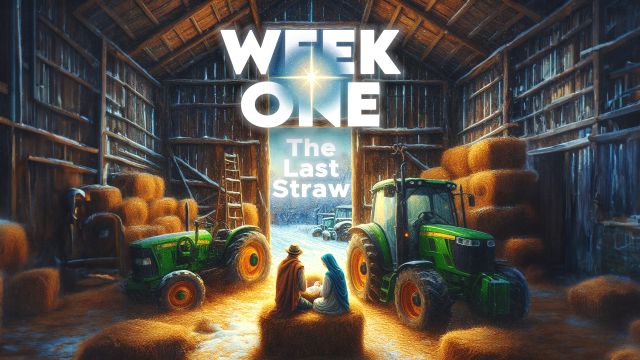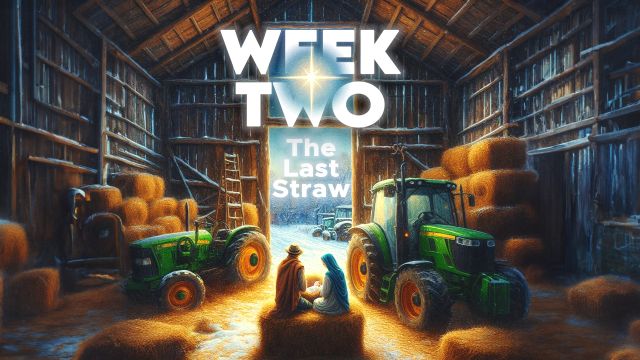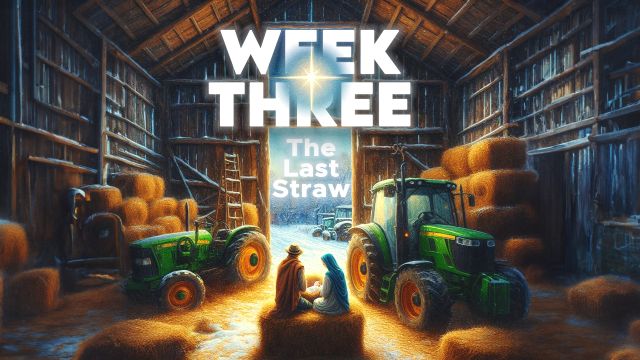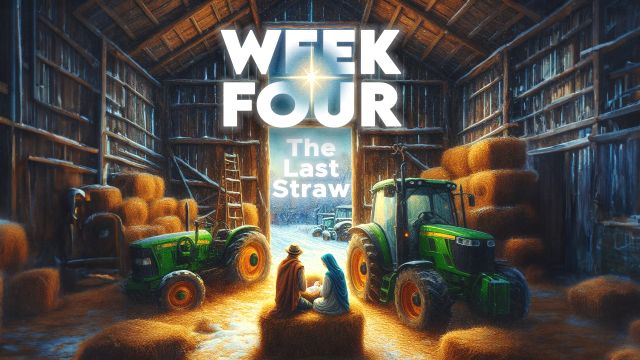The Last Straw - Connect Groups
What Are Connect Groups?
What are Connect Groups?
‘Connect Groups’ is the name we give to small informal gatherings who decide to meet together to explore the Bible alongside our monthly themes. These groups are independent and folk can simply set up their own Connect Group themselves, meeting together with friends and family on their own basis. In this time of Lockdowns when people can’t get together physically this material can still be used to meet together online.
Each month we produce a range of questions to adapt our themes for group discussion. The material is offered as a starting point and there is no need to go through all the questions.You can pick and choose, tailoring it to suit the needs and interests of your group. Each ‘Part’ could form the basis of a weekly roughly 90 minute meeting but you could break it up differently. Let us know if you would like to find out more about Connect Groups and different ways of linking into the Sanctuary First community.
We all come to the Bible with our own questions, insights and barriers. The guiding principle we have in writing these is to ask questions we don’t already know the answer to! Our hope is to facilitate open-ended discussions. Often the most valuable parts of group chats are the bits that go off on bizarre tangents. And there’s nothing wrong with that. Jesus knows a thing or two about bizarre tangents…
Need some advice on starting your own Connect Group?
Get in touch.
Introduction
Introduction
The last straw laid by Mary in the manger for her newborn to sleep.
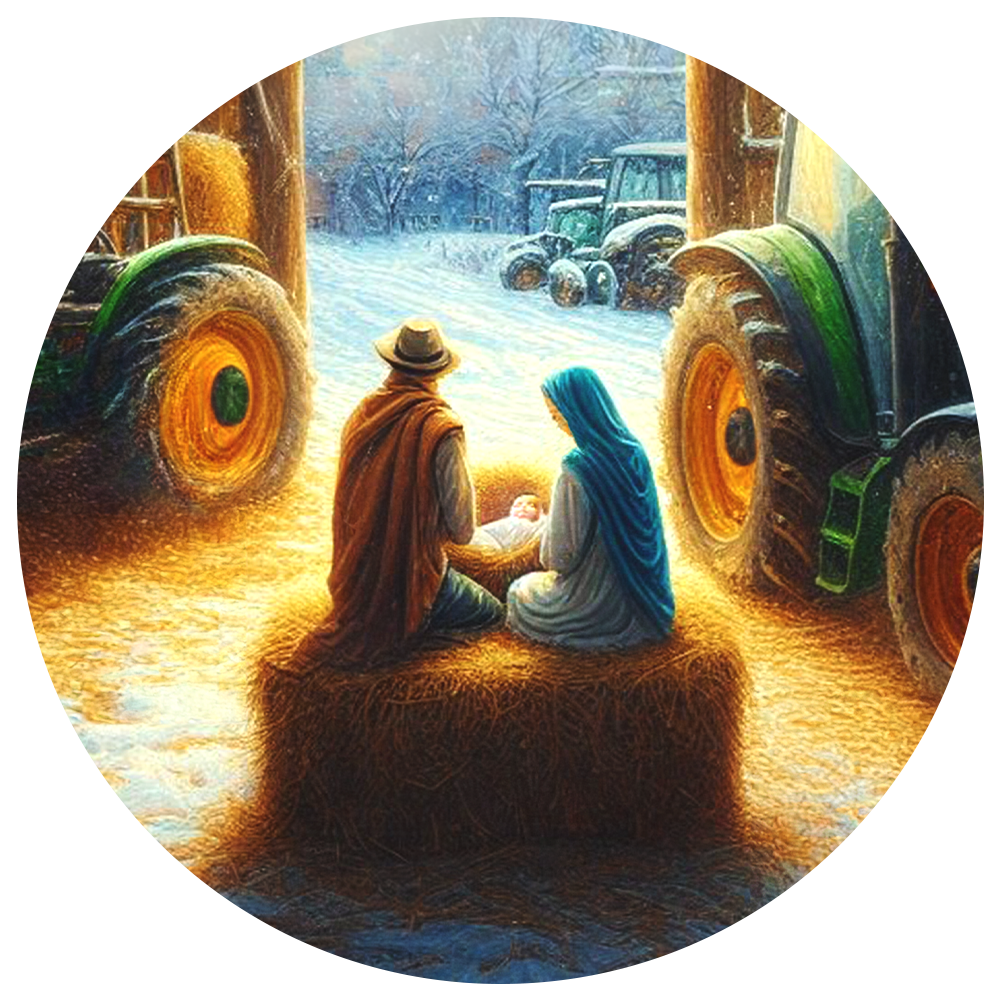 Christmas, it can sometimes feel like the last straw can’t it! Coming at the end of the year, it’s cold and dark and then there’s all this expense and faff! We’ve made it into this whole thing. Sometimes, honestly, we think, could we not just skip it? Overwhelmed, scunnered, and fed up, “That does it!” we mutter under our breath. But this year as we gather together in the dark and cold of winter we are going to discover that ‘the last straw’ of the nativity is not the end of something, but only the beginning. For the last straw is that wee handful of straw that held the baby Jesus! Who comes to tell us “I ken, and I care, I love you, come, adore me!”
Christmas, it can sometimes feel like the last straw can’t it! Coming at the end of the year, it’s cold and dark and then there’s all this expense and faff! We’ve made it into this whole thing. Sometimes, honestly, we think, could we not just skip it? Overwhelmed, scunnered, and fed up, “That does it!” we mutter under our breath. But this year as we gather together in the dark and cold of winter we are going to discover that ‘the last straw’ of the nativity is not the end of something, but only the beginning. For the last straw is that wee handful of straw that held the baby Jesus! Who comes to tell us “I ken, and I care, I love you, come, adore me!”
Let’s strip away all the pressure and expectation we’ve layered on top of Christmas and embrace the irony that ‘the last straw’ is actually a sign of hope! Together we will be playfully making a thatch of straw, weaving together grace, peace and faith, to make a shelter to gather under and gaze at the wonder of Jesus’s birth anew.
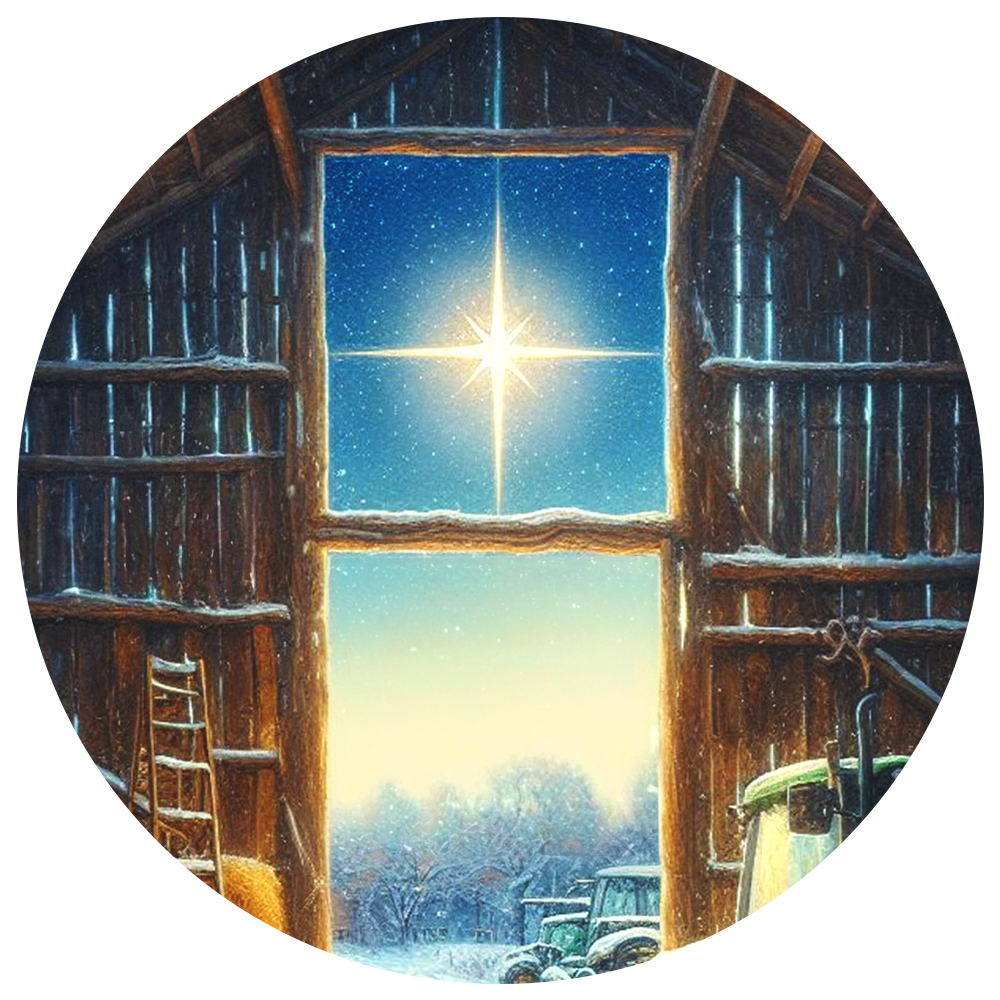 Because when it comes down to it, at the last moment, at the last straw, is love.
Because when it comes down to it, at the last moment, at the last straw, is love.
And you know what, as we go through Advent we see that straw is a recurring image throughout the nativity. So we are going to see what it can teach us about fragility and resilience, vulnerability and courage, and most of all: the sustaining power of God’s timeless love as it breaks into the midst of our complicated, messy lives.
Straw…
The last straw laid by Mary in the manger for her newborn to sleep. The last straw the weary donkey chewed on as it stamped its aching hooves. The last straw of the shepherds huddling on a hillside. The last straw for humanity that was the incarnation, Jesus coming to be with us. The last straws we face that threaten to break the camel’s back. This Advent we will make a kind of thatch of all this straw. A place where we can shelter and rest and look up at the strands of grace, peace and faith woven together.
For amongst the straw, motes floating in the air, caught in the moonlight and an angelic glow, a voice speaks to Mary…
For amongst the straw Jospeh and Mary bedded down with their donkey on the journey, exhausted but determined…
For amongst the straw the shepherds encountered angels, finding themselves speechless and then speechfull…
For amongst the straw of the manger, Jesus was tenderly placed by Mary — vulnerable and courageous…
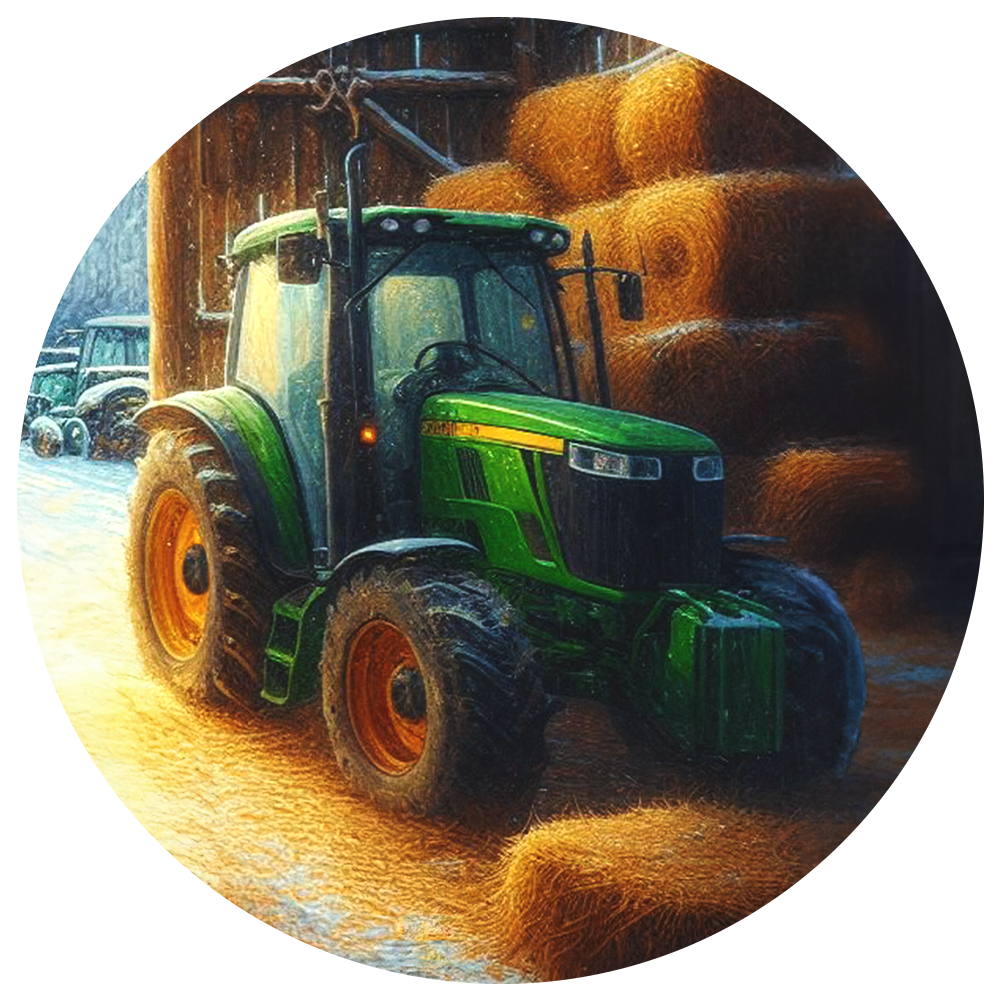 Straw is a fascinating material that we have been using for thousands of years for its unique properties. It is both fragile and strong, more that the sum of its parts. As well as fodder for animals, straw is an insulator that traps air and has been used in so many ways, such as for bedding, housebuilding, manufacturing, storing and preparing food, packaging, basket making, producing paper, stuffing scarecrows, making clothing.
Straw is a fascinating material that we have been using for thousands of years for its unique properties. It is both fragile and strong, more that the sum of its parts. As well as fodder for animals, straw is an insulator that traps air and has been used in so many ways, such as for bedding, housebuilding, manufacturing, storing and preparing food, packaging, basket making, producing paper, stuffing scarecrows, making clothing.
Just as straw, gathered together to create an insulating thermal effect, can trap heat and ward off the cold and dark, or spoiling and ruining — so can the power of God’s grace, peace, and love. When we are clutching at straws, have pulled the last straw, or worried that the next one may break the camel’s back, we gather together in God’s love to trap the ancient heat of the universe to warm our hands, hearts and souls. Jesus has come!
Christmas is the last straw? Aye, and it’s brilliant! Because the last straw is love!
SEEDS TO SOW: We have a 'Seeds to Sow' phrase at the beginning of each section. These are open-ended and optional and are designed for people wanting to develop their own ideas/resources in response to the material. Perhaps if using this material as a group you could use these prompts to inspire a time of prayer, or drawing, or creative writing? They are intended to be short and sweet, simply a starting off place for you and your imagination, be encouraged to tailor/develop as suits your group.
Download the Discussion Questions as a PDF
These discussion questions adapt our monthly theme for small Connect Groups or personal Bible study. The questions are divided into 4 parts to correspond with the 4 weeks of the Daily Worship theme. They are offered as a guideline and there is no need to go through all the given questions in a single session, or in the following sequence. Feel free to pick and choose, or adapt to what interests you or your group.
Find how to get involved: Connect group Blog
Week One
Clutching at straws: Grace
 What if, when all is said and done, that the last straw is grace…What if — when we’re so deep we can’t get deeper, when we’re so far-flung we can’t be flung further, when we’re so broken there’s no more broke to get — what if then, with all pretence and illusion gone, we find that the last straw that we are clutching is: grace. It’s the ancient love of the universe Father, Son and Holy Spirit saying: I know, I’ve got you, I understand, I will never leave you. And the voice is familiar. And it speaks from experience, from having weathered all the world throws at it. It’s a voice that’s qualified to know. It’s the last straw. It’s grace.
What if, when all is said and done, that the last straw is grace…What if — when we’re so deep we can’t get deeper, when we’re so far-flung we can’t be flung further, when we’re so broken there’s no more broke to get — what if then, with all pretence and illusion gone, we find that the last straw that we are clutching is: grace. It’s the ancient love of the universe Father, Son and Holy Spirit saying: I know, I’ve got you, I understand, I will never leave you. And the voice is familiar. And it speaks from experience, from having weathered all the world throws at it. It’s a voice that’s qualified to know. It’s the last straw. It’s grace.
Seeds to sow: What does Jesus sound like do you think?
Read Isaiah 64: 1-9
The clay cries out to be remoulded!
What is your response to the metaphor? The Bible is full of metaphors and they don’t all speak to us all equally throughout our lives. Some pictures or analogies might fire your imagination, while others aren’t perhaps as relevant for where you are at this moment.
In pottery, tempering is when other materials are introduced to clay to help bind it and to reduce shrinkage and cracking. Historically certain plant fibres have been used as part of this process, working through the clay. Perhaps it’s fruitful to think of the Holy Spirit tempering us, working through the clay, strengthening us and binding us — using straws of grace to hold us together.
As we picture God as a potter, working the clay, what could be some of the ordinary but invaluable things that the Holy Spirit could be using to ‘temper’ us — to help us bind together and become more resilient? Perhaps particular acts of grace, compassion or generosity?
Read 1 Peter 1
As we go into Advent, preparing to celebrate Christmas in a world riven by inequality, uncertainty and conflict are we simply clutching at straws when we say that’s God’s transforming grace can make a difference?
How do we take hope? And where do you find hope or encouragement in this reading?
Read Luke 1: 26-38
As straw is our theme for Advent, we picture Mary illuminated by the angel’s light while small motes that normally she would have missed are illuminated — suspended in the air — as her life is suspended between two chapters. Mary catches a glimpse of a microscopic world of wonder as her life changes course, the contours redefined by grace. Read this beautiful poem Annunciation by Katy Emslie-Smith and discuss it as a group alongside the reading. What emotions does it conjure? How does it make you feel about Mary?
Week Two
The straw that broke the camel’s back: Peace
 Straw has a rich history in human civilisation: in caring for livestock, as insulation, in manufacturing, construction, even in making ice cream! * Look at the seed to sow below. Any strand of straw can seem frail — but just a little bunch and suddenly something is starting to happen. Because straw creates pockets of air, trapping heat inside. So are we as Christians, creating little pockets of warmth, when gathered together we can help store heat and energy. The straw that breaks the camel’s back is often a negative expression, the idea of the last thing that finally tipped somebody over. But what if the camel isn’t a camel… What if the ‘camel' is an obstacle or a barrier? What if the camel is poverty? Or climate change? Or inequality? Or injustice? How can we be straw together, knitting ourselves into something more than the sum of our parts, tiny on our own, but powerful together in other to break the back of hunger, or global warming, or loneliness?
Straw has a rich history in human civilisation: in caring for livestock, as insulation, in manufacturing, construction, even in making ice cream! * Look at the seed to sow below. Any strand of straw can seem frail — but just a little bunch and suddenly something is starting to happen. Because straw creates pockets of air, trapping heat inside. So are we as Christians, creating little pockets of warmth, when gathered together we can help store heat and energy. The straw that breaks the camel’s back is often a negative expression, the idea of the last thing that finally tipped somebody over. But what if the camel isn’t a camel… What if the ‘camel' is an obstacle or a barrier? What if the camel is poverty? Or climate change? Or inequality? Or injustice? How can we be straw together, knitting ourselves into something more than the sum of our parts, tiny on our own, but powerful together in other to break the back of hunger, or global warming, or loneliness?
SEEDS TO SOW: * Before refrigeration straw used to be used to insulate icehouses! What unexpected sweetness could we bring into our communities today, insulated by straws of peace?
Read Psalm 85
Looking at verse 10, let’s reflect on the relationships between love and faithfulness; righteous and peace. Can you have love without faithfulness, or faithfulness without love? And similarly can you have peace without righteousness, or righteousness without peace?
Read Mark 1: 1-8
As we explored in the introduction, straw when gathered together becomes more than the sum of its parts. The gathering together is important.
We are all called, like John, each in our own way to play a part in gathering together the straw. In creating community and space for people to discover and rediscover God’s transforming love. We cannot bring people to faith ourselves, we can only point the way we have gone, the roads we have travelled.
As we are thinking about peace this week, in what ways do you think John is promoting the cause of peace? And can we learn anything from him?
Read James 1: 26-27
Pure religion by the way! What is pure religion? Getting your hands dirty amongst the straw of real need in real lives — to avoid the worse stains of hypocrisy and cruelty.
How do we tell the difference between the honest dirt of rolling our sleeves up as we get to work for the Kingdom and what is described as the stains of the world?
Week Three
Drawing the short straw: Faith
 None of us are insignificant to God. None of us pass without notice. None of us are forgotten or mislaid. When we fear we have drawn the shortest straw, Christ tells us there are no long straws and short straws. We are not ranked in some heavenly moral standings index. There are no loyalty points. We don’t get to cash in. Sometimes one of the biggest leaps of faith can be realising that we ourselves are as important as everyone else. Another is: appreciating the equal importance of everybody else.
None of us are insignificant to God. None of us pass without notice. None of us are forgotten or mislaid. When we fear we have drawn the shortest straw, Christ tells us there are no long straws and short straws. We are not ranked in some heavenly moral standings index. There are no loyalty points. We don’t get to cash in. Sometimes one of the biggest leaps of faith can be realising that we ourselves are as important as everyone else. Another is: appreciating the equal importance of everybody else.
SEEDS TO SOW: How ‘fair’ or ‘unfair’ do you think daily life is for the average person where you live?
Read Isaiah 61: 1-11 (Perhaps read twice)
God is for the oppressed and broken hearted. God is here for any and all who have been dealt the short straw, the raw deal, the heavy burden. There are no short straws in God’s love.
What words or phrases jump out to you from the reading? What are you drawn to reflect on?
Read 1 Thessalonians 5: 16-24
’Keep faith’, is something that’s easy to say and often hard to do.
The instructions in verses 16-22 can be a tall order. Is it fair to say that, reading through the chapter, this is advice given for a whole community but that we often shift the onus on to us as individuals with these kind of readings… as if its all up to us individuals? How can we help one another to rejoice and keep on?
Read Luke 1: 46b-55
The Magnificat Seven…
Depending on the translation we can work out around about 7 sentences here over the 11 verses of the ‘Magnificat’, Mary’s earthshaking song.
What are the implication of these lyrics for those who feel like they’re holding the short straw today?
Week Four
The last straw: Love
 When it comes down to it. When it comes right down to it. The last straw is love. This Christmas whatever we’re facing, whatever pressures are mounting, whatever strains we’re under we know that we face them with Jesus, the last straw. To pick up our metaphor from the theme introduction, the incarnation could be the start of thatch making — the last straw needed to begin weaving together a new shelter, a new home with peace, love and faith.
When it comes down to it. When it comes right down to it. The last straw is love. This Christmas whatever we’re facing, whatever pressures are mounting, whatever strains we’re under we know that we face them with Jesus, the last straw. To pick up our metaphor from the theme introduction, the incarnation could be the start of thatch making — the last straw needed to begin weaving together a new shelter, a new home with peace, love and faith.
As this final week of our theme falls over the Christmas period it’s possible that those who have been working through the material on a weekly basis in a group might not meet in the same way. With that in mind the questions this week have an especially reflective emphasis to lend themselves to individual use, but they would absolutely also work for a contemplative group study, whatever suits you.
SEEDS TO SOW: What song are you inspired to sing this Advent?
Read Luke 2: 1-7
And so finally we join Mary at the last straw of her labour as she gives birth to the Son of God. Picture the manger where Jesus was laid, the smell of the straw, the sounds of the night.
What does it mean for our faith that our Messiah was placed in a simple makeshift bed and not plush palace?
Read Luke 2: 8-20
The shepherds’ last straw… At wit’s end the bamboozled shepherds realise they’ve been headhunted as heralds of heaven.
Is it possible that we too are being headhunted as heralds of heaven, but we miss it because we’re too distracted?
Read Psalm 96
How are you rejoicing this Christmas to allow others who don’t have faith to participate in the joy?
We should be less critical of people without faith who are celebrating Christmas, because in the very act of celebration they can discover grace and unpack meanings.
How can our praise draw others who are celebrating into the ongoing celebration of our discipleship following Jesus?





